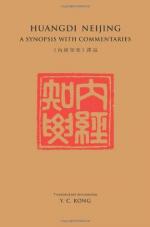|
This section contains 593 words (approx. 2 pages at 300 words per page) |

|
Power and authority in Sculpture - Verrocchio and Shi Huangdi
Summary: How a one western and one non-western sculpture portrayed power and authority according to political, social and religious ideals.
Verrocchio's equestrian statue of Bartolommeo Colleoni (G 619) displays his ability to portray the power and authority of a military leader and his horse. The horse is attentive and every muscle is tensed, ready to go into battle. But Colleoni controls the massive beast with a single, loosely-gripped hand on the reins as if he knew the horse would not dare make a false move under his control. The statue leans forward into a scene of war. The front hoof of the horse is revolutionary because it is totally unattached from the base and helps to establish the power and authority of the rider in a totally new way. In earlier sculptures the horses hoof would rest upon a small sphere, symbolizing their control over the world, but Verrocchio's sculpture proves that it is independent and can stand on its own. It proves that statues no longer need any...
|
This section contains 593 words (approx. 2 pages at 300 words per page) |

|


